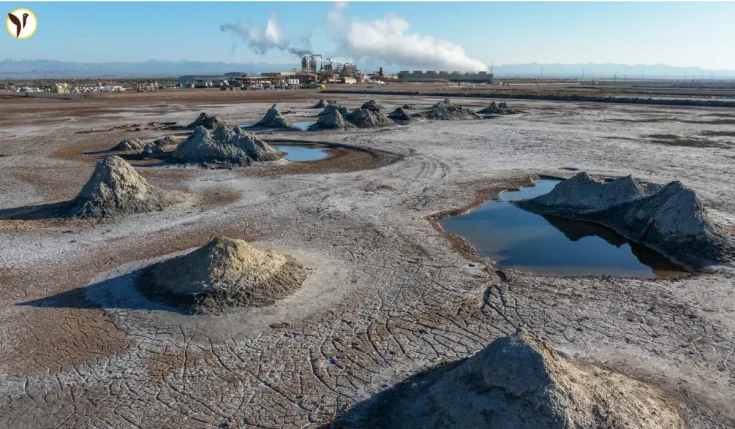California's $540B Lithium Discovery: A Boon or Burden for Imperial Valley?
Beneath the shrinking Salton Sea in California lies an estimated 18 million metric tons of lithium, valued at approximately $540 billion. This discovery positions the U.S. to potentially achieve lithium self-sufficiency, crucial for electric vehicle batteries and renewable energy storage.
The region, now dubbed "Lithium Valley," has attracted major players like Controlled Thermal Resources (CTR), EnergySource Minerals, and Berkshire Hathaway Energy Renewables. CTR's Hell's Kitchen project recently received judicial approval to proceed, despite environmental groups' concerns.
Environmental and Community Concerns
Local organizations, including Comite Civico del Valle (CCV) and Earthworks, have raised alarms about potential environmental impacts:
-
Air Quality: The drying Salton Sea exposes toxic dust, exacerbating respiratory issues in a region already plagued by high asthma rates.
-
Water Resources: Lithium extraction may strain the already limited water supply, affecting both agriculture and daily life.
-
Hazardous Waste: The extraction process could produce harmful byproducts like arsenic and lead, posing disposal challenges.
Despite assurances from developers about using a "closed-loop system" to minimize environmental impact, skepticism remains among residents and activists.
Legal and Policy Developments
In January 2025, a California judge dismissed a lawsuit challenging the Hell's Kitchen project's environmental review, allowing construction to proceed. However, CCV and Earthworks are considering an appeal, emphasizing the need for comprehensive environmental safeguards and community engagement.
Economic Prospects and Equity
Proponents argue that lithium extraction could revitalize the Imperial Valley's economy, offering jobs and infrastructure development. State officials propose reinvesting up to 80% of revenues into local communities. Yet, activists stress the importance of ensuring that economic benefits do not come at the expense of environmental health and social equity.






